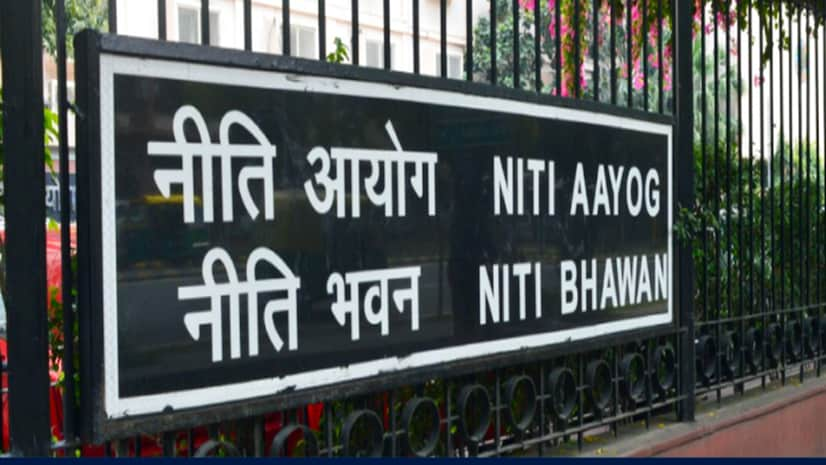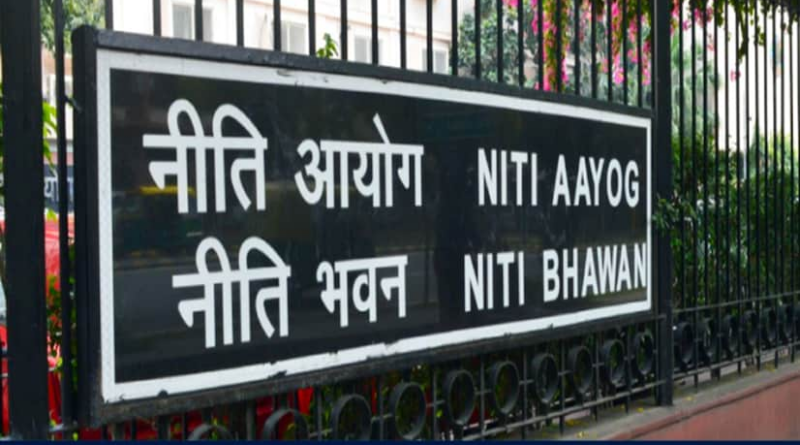The NITI Aayog panel issues a separate law to deal with public health emergencies.

The report also noted that it is important to be prepared with strategies and preventive measures, which can be found in the first 100 days (Image: https://www.niti.gov.in/)
An expert panel report set up by the NITI Aayog has recommended a separate law called the Public Health Emergency Management Act (PHEMA) to deal with epidemics and epidemics.
In its report titled ‘Future Pandemic Preparedness and Emergency Response – Action Plan’, the panel recommended the creation of a dedicated fund for Pandemic Preparedness and Emergency Response (PPER) and the creation of mechanisms for organized and strengthened governance.
A four-member group was formed to prepare an action plan for future pandemic preparedness and emergency response, post-Covid-19.
Its report that the first 100 days of the crisis are critical for effective control. “It is important to be prepared with strategies and countermeasures that may be available at this time”, it added. Therefore, the report provides an action plan for a 100-day response to any pandemic.
The proposed recommendations are part of the new PPER framework, which aims to prepare a road map and action plan for preparing for any public health emergency and providing a well-defined response In these 100 days.
The expert group made recommendations in four areas: Governance and law, data management and monitoring, research and innovation, and risk communication.
For the government, the report recommended the creation of a separate law (PHEMA) that would allow for a comprehensive approach to health management, covering prevention, control and response to disasters, adding that it could also provide for of creating an experienced public health workforce nationally and internationally. state level.
“PHEMA can deal with different areas outside of epidemics, including non-communicable diseases, disasters and biological terrorism, and should be located in a developed country,” he said. group report.
The report also noted that it is important to be ready with strategies and preventive measures, which can be found in the first 100 days.
A Strengthened Group of Secretaries, headed by the Cabinet Secretary has also been proposed under the PPER to implement a well-oiled, prepared and prepared machinery before any emergency.
“A well-designed scorecard system should regularly monitor progress on key targets,” the report said.
According to the report, the main targets include the development of capacity for human resources and infrastructure, the development of new methods of combating, suitable high-risk funds for obtaining a profit high among others.
The report also noted that adequate funding needs to be made available for pandemic preparedness as was the case during Covid-19, when need-based funding packages were available for other emergency response activities. emergencies such as genomic testing, vaccination and diagnostic development.
For data management and monitoring, the report recommends establishing harmonized systems for data collection, access, sharing, analysis, as well as an integrated data portal for infectious diseases.
“There is also a need to establish a strong biosecurity network for BSL3 and BSL 4 to identify and study the epidemiology of all front-line pathogens,” the report added.
For research and innovation, the group recommended the allocation of PPER funds for advanced research to develop measures such as vaccines and drugs against priority pathogens.
The report proposes the creation of an innovation center for new platform technologies and vaccine research, development and manufacturing. “There is an urgent need to increase production capacity and supply chains for the availability of antimicrobial measures,” the report said.
It recommends the establishment of a special risk communication unit with standard operating procedures (SOP’s) and protocols for the release and regular dissemination of information to various stakeholders.
Highlighting that India’s regulatory system needs special attention, the report also stated that there is a need for global harmonization of standards to allow adoption of regulatory standards across regulatory authorities. who are accepted around the world and a common design of new technology and a quick response for emergency approval. .
First Published: Sep 12 2024 | 11:07 AM IS
#NITI #Aayog #panel #issues #separate #law #deal #public #health #emergencies
